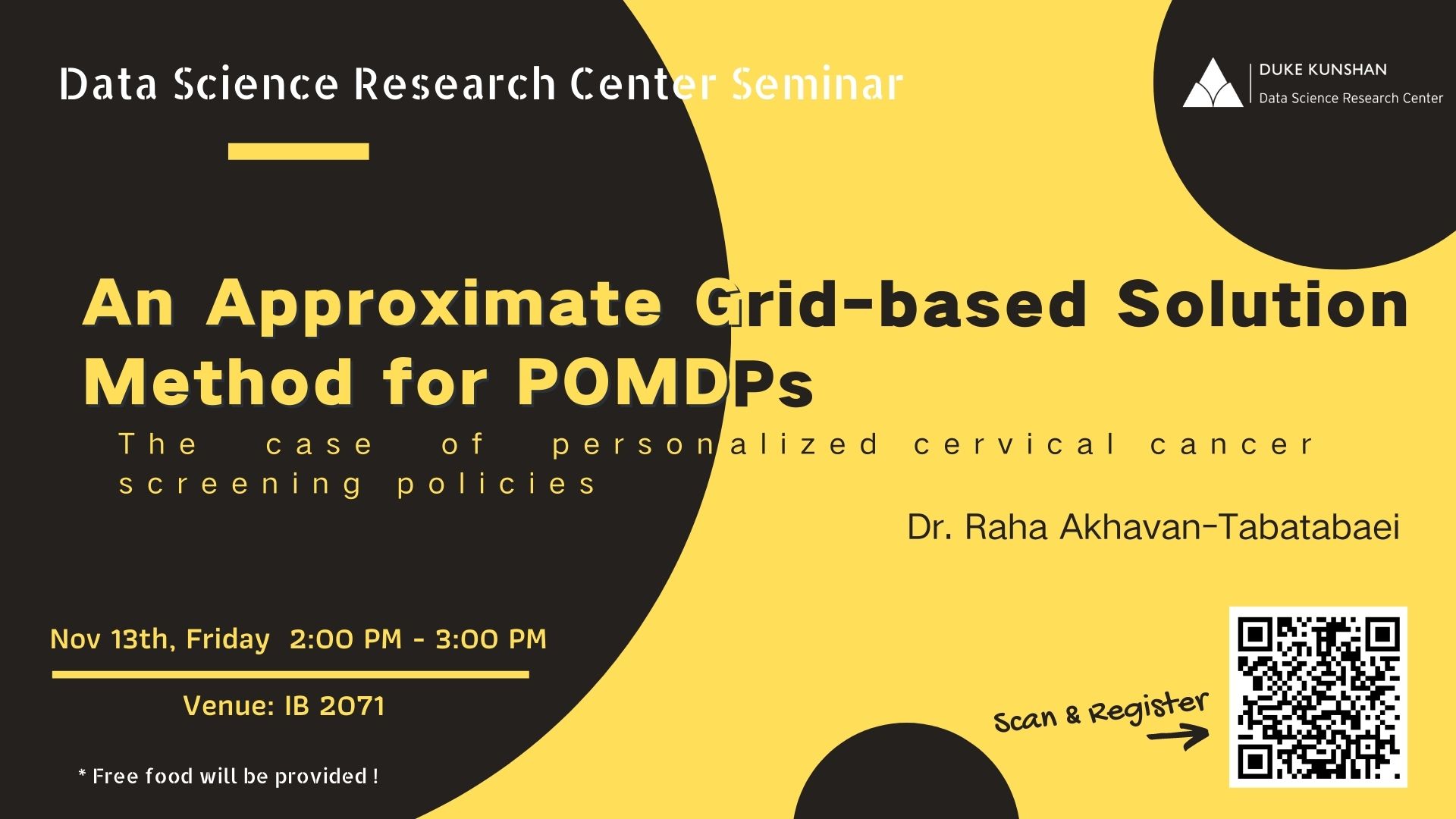Abstract
Partially Observable Markov Decision Process (POMDP) model, an analytical framework for optimizing theory, which can be applied in making the screening decision: the type of screening test, the individual cancer risk, and the test characteristics. Age-specific unobservable disease progression and regression rates are also reflected in the health state transition probabilities of the underlying Markov chain, resulting in six partially observable states. Given the large size of POMDPs become computationally intensive if not intractable. Hence, we propose to solve the problem by applying the approximate grid-based solution method and use Gaussian Process Regression (GPR) to enquire value functions at non-grid belief states. We provide insight on the health outcomes of implementing our patient-tailored screening policy.
Bio
RAHA AKHAVAN-TABATABAEI is associate professor of Operations Management and program director of M.Sc. in Business Analytics at Sabanci Business School, located in Istanbul, Turkey. Prior to this role, she has held positions of associate professor of Operations Research and founding director of Masters in Analytics at Universidad de los Andes in Bogota, Colombia, and senior industrial engineer at Intel Corporation in Arizona, USA. She has received her PhD in Industrial Engineering and Operations Research from North Carolina State University. Her research is focused on stochastic modeling and data-driven decision making with applications in healthcare, logistics, revenue management and reliability among others.


